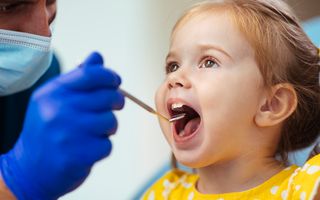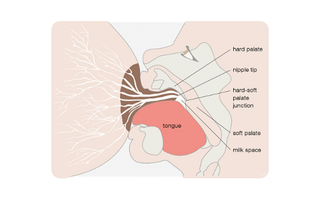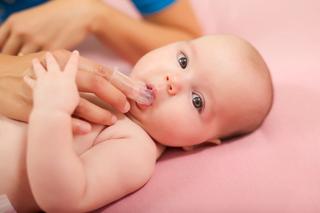
Your child’s first teeth are essential for their future oral health and development. These baby teeth (also known as primary teeth or milk teeth) guide the growth of facial bones to ensure that permanent adult teeth come through in the correct position and alignment. The primary teeth are also vital for children sounding out words as they learn to talk.
We know that baby teeth fall out naturally, from the ages of about 6 to 13, and our dentists know at what age permanent teeth (or secondary teeth) come in. However, premature loss of primary teeth can significantly impact your child’s oral and general health. So at our Richmond dental clinic, we know kid’s dentistry is very important. All staff guide children on solid, lifelong oral health habits at their regular dental appointments.
Your trusted Richmond Dentists
Our team of skilled and dedicated dentists, therapists and hygienists work hard to create a peaceful and welcoming environment for your child at our Richmond dental clinic. It’s our philosophy to manage oral health throughout all life stages. We provide quality dentistry for kids and adults.

First, we work with babies and children and know what indicators to look for. We may recommend treatments such as fissure sealants and orthodontics during these early years.
Then, as the patient grows into a teenager, we manage the specific oral health and orthodontic requirements that may arise.
Finally, as your child moves into adulthood, they can be sure that ongoing appointments at our Richmond dental surgery will continue to manage their oral care throughout the following decades and life stages.
Children’s Dentistry Appointments at our Richmond Dental Surgery
Coming to visit us for paediatric dentistry appointments involves:
- getting children used to the dental clinic environment (including sights, sounds and smells)
- identifying oral habits such as thumb sucking
- learning how to care for children’s teeth (from infants and toddlers all the way up to teenagers)
- recording tooth loss milestones
- monitoring the development of permanent secondary teeth (adult teeth)
- discussions of diet concerning optimal oral health.

In the dental chair, your child will receive:
- a fluoride treatment
- a gentle scale, clean and polish
- instructions on how to best brush their teeth.
Our dentists, hygienists and therapists will also talk with parents about general health, dietary advice and overall oral and dental development. So you and your child will leave our dental surgery understanding what you each have to do to keep your child’s oral health in top condition.
Oral Health for Babies
A baby’s mouth starts developing from day one. Breastfeeding helps to develop the proper sucking action and promote the development and activation of the tongue function, promoting many positive developmental attributes.
Breastfeeding v bottle-feeding – craniofacial development

Breastfeeding is how a baby extracts milk from the breast via a tongue muscle ‘wave’ action, as the back portion of the tongue is crucial in drawing out the breast milk.
When breastfeeding is carried out correctly it:
- Helps with control of the milk once in the mouth
- Aids correct swallowing
- Protects the airways.
These muscular skills are carried onto when infants start eating solids and later, drinking from a cup.
- Breastfeeding increases mandibular sagittal growth, through movements of the mandible (bottom jaw) during sucking. The mandible must move forward to grasp on to and support the breast below the nipple. This activity aids growth and development of the mandible muscles and bone.
- Breastfeeding establishes a nasal breathing pattern. Humans should be able to breathe in and out through the nose. During breastfeeding, babies instinctively breathe solely through their noses. This way of breathing encourages growth of the nasal airways and initiates proper closed mouth breathing habits.
- When breastfeeding, the baby / infant should be upright. When they are lying down or in a head back position, the bottom jaw struggles to protrude forward enough for a proper latch. Milk flow relies on gravity, which is often impacted if the child’s position isn’t correct. Flow-on effects can also include delayed or incorrect development of tongue action and the infant’s swallowing technique.
- Feeding while the child’s head is back can also contributes to an increase in incidence ofear infections.
In comparison, bottle-feeding doesn’t aid craniofacial development in the same way. The following list details outcomes which may arise due to tongue placement and suction action of a baby / infant taking its milk from a bottle:
- Initiation of a piston-like tongue motion to extract milk. This can be attributed to a faster flow of milk from the bottle. The tongue pushes forward to stop low whilst swallowing. This will commonly result in a reverse swallow or tongue-thrusting pattern.
- A compromised bone growth of the palate. The back half of the tongue is not placing pressure on the palatal bone, which can contribute to long-term narrowing of the upper arch, tooth crowding and limited space for proper tongue position.
- The mandible can sit further back in bottle-feeding, contributing to a class II (overbite / deep bite) tendency.
It’s important to remember, however, that the optimal health of the mother and the child combined is a key consideration. As long as the baby is fed and growing, and the mother’s mental health is sound, that’s the ultimate aim. Our expert team here at Richmond Fine Dentistry can assess and correct any Issues arising from incorrect craniofacial development. From a young age, our juvenile patients and their families can explore orthodontic intervention, which may include the use of Myobrace as a first step.
Frequently asked questions
Children can begin to see a regular or paediatric dentist from around the age of one, or when their first tooth comes through if that happens sooner. Your dentist will advise you on when to come back for the next appointment, which could be six months or up to a year.
A specialised children’s dentist is called a paediatric dentist. These are dentists who specialise in offering treatment for children, but it’s likely you can visit your regular dentist as many also offer services for kids.
Some children may be anxious leading up to their dental appointment. You can reassure your child by talking about the visit positively, showing excitement, and talking about why it’s so important for their health.



